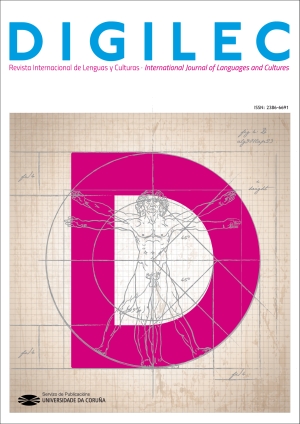Thinking dramatic literature from the action of writing
Main Article Content
Abstract
The teaching of dramatic literature in the framework of Drama Schools must be global and humanistic, and could also include acting, writing and staging. From a pedagogical point of view, these teachings demand that students develop their creativity, capacity for expression and receptivity. Linked to the stage, they must also reflect on the social environment and contemporary reality. Creativity and imagination are essential tools in artistic practice and pedagogy. When applied to dramatic literature, they offer the possibility of providing students with a new vision of the theoretical contents and dramatic texts. Their importance is paramount in the understanding of the processes and structure of the plays discussed in the classroom. Imagination and criticism are not mutually exclusive realities. Both operate together and constitute a different way of looking at theatrical art: the art of the word, in which dramatic literature participates. Creating in order to understand and encourage places of encounter and debate. Creativity brings students closer to the creations of playwrights, but also to the society in which they are immersed. Thinking about theatre in practice, through creative exercises involving actionwriting, enables drama students to question the relevance of a text or its relationship to their own present.
Keywords:
Downloads
Article Details
References
Alonso de Santos, J, L. (2012). ¡Viva el teatro! Madrid: Editorial Everest.
Bercebal, F., De Prado, D., Laferrière, G. y Motos, T. (2000). Sesiones de trabajo con los pedagogos de hoy. Ciudad Real: Ñaque.
Boal, A. (2001). Juegos para actores. Barcelona: Alba Editorial.
Caride, J., Trillo, F. y Vieites, M. F. (2005). Arte dramática e función docente. Santiago de Compostela: Consello de Cultura Galega.
Eliot, T.S. (1995). Cuatro cuartetos. Madrid. Cátedra.
Freire, P. (2020). Pedagogía del oprimido. Madrid: Siglo XXI.
García May, I. (2006). Os arqueólogos do imposible. Unha aproximación á historiografía do espectáculo. En VV.AA. (eds.), Anuario galego de estudos teatrais. Vigo: Escola Superior de Arte Dramática de Galicia. Instituto Galego de Artes Escénicas e Musicais. Xunta de Galicia.
Greene, M. (2005). Liberar la imaginación. Ensayo sobre educación, arte y cambio social. Barcelona: Graô.
Lara, L. (2000). Emilio Lledó, baluarte de la enseñanza pública. Cuadernos de pedagogía, 287, 44-50.
Mayorga, J. (2009). Teatro para minutos. Ciudad Real: Ñaque.
Rodríguez Ruibal, E. (1990). Brinquemos ó teatro. A Coruña: Consellería de Educación e Ordenación Universitaria.
Sanchis Sinisterra, J. (2008). Teatro menor. Ciudad Real: Ñaque.
Santos Guerra, M. Á. (2020). La escuela que aprende. Madrid: Ediciones Morata.
Forés, A. y Vallvé, M. (2002). El teatro de la mente y las metáforas educativas. Ciudad Real: Ñaque.


